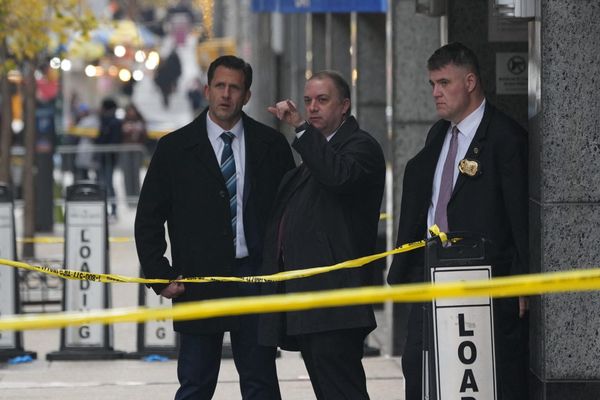DALLAS -- Victor Alvelais has been in the shoes of the kids he works with.
He grew up in Oak Cliff area of Dallas, went to O.W. Holmes Middle School, and hung out in St. James Manor apartments.
He knows how acts of violence can escalate. Alvelais spent 26 years in prison after firing bullets and taking a life in an attempt to defend a friend.
Now Alvelais tries to convince youths not to start on the path he was on. He’s part of a group of what’s known as “violence interrupters,” who go into neighborhoods speaking to at-risk young men and women in a language they understand.
“I’ve used that lived experience as a way to connect as I tried to do this work,” Alvelais said. “I feel like this is a calling, a passion. I’m just doing everything I can to help our community and our people.”
While serving his time, Alvelais found his passion for helping people. Soon after his release he started working with Dallas CRED, a 12-person team that embeds credible messengers and violence interrupters in the communities. He started by canvassing communities and building relationships. Now, he’s a program director on the team.
The city of Dallas entered a two-year $1.6 million contract with the group starting in 2021 with the intention of not relying solely on police for public safety. The money pays for equipment, training, office rental and operational expenses among other things. The team members also receive a salary.
“We work primarily out of the apartment complexes,” Alvelais said. “That’s where the majority of those violence crimes happen. So in those apartment complexes we are trying to encourage conflict resolution, discourage acts of violence, and try to shepherd them toward services and opportunities to improve their quality of life.”
The city of Dallas partnered with Youth Advocate Programs to create Dallas CRED, with the goal of reducing violent crime in four specific focus zones throughout Dallas. One of these zones, Overton and Illinois in Oak Cliff, was Alvelais’ zone.
In its first year, Dallas Cred provided more than 600 social service and employment referrals to community members in the four focus zones. Also, aggravated assaults from January to May in the area decreased by over 20 percent year over year.
Mayor Eric Johnson has prioritized public safety in the past year after an uptick in crime. Alongside Dallas CRED, the city is also working on increasing street lights and blight remediations, such as the Mill City Public Safety Initiative.
Being familiar
A lot of what Alvelais does is simple — show up.
Kids throughout his community often greet him with hugs. To them, he is a familiar face and someone they can rely on.
Alvelais is a mentor to many kids in the apartments he visits regularly. Sometimes he provides resources to families, other times he hosts workshops on de-escalating violence. His team has led clean-ups, food drives and community block parties by working with residents, local organizations and schools.
The program stems from Youth Advocate Programs, a national nonprofit that works against youth incarceration. It has implemented similar programs throughout the country.
“There’s this type of recognition happening across the country,” Fred Fogg, national director of violence prevention at YAP, said. “Implementing this program has been a success in Baltimore and Chicago and in key areas in L.A. this type of model is very successful. The key factor in that success is support from mayors and understanding from local law enforcement about what this work looks like.”
Fogg said that this program is not designed to replace policing and they often have to clarify with community members that they are not in the community as law enforcement.
“There are different responsibilities, like police officers responding to crime and they have crime prevention methods that are really specific,” Fogg said. “This work allows community members who are from these communities to engage in a way that institutions, systems, or law enforcement typically can’t.”
Violence interrupters and credible messengers are found through grassroots organizations, outside local businesses, or even at barber shops. Fogg said that the process involves identifying those who have credibility within their community. After hiring, the team receives continuous training.
‘So many funerals’
Sharron Evans Jackson has been principal at Holmes Middle School for seven years, making her its longest-serving principal.
Jackson grew up in this same community. She knows her kids well as she spends her time giving high fives to students as they leave after school. Jackson said that she’s grateful for Dallas CRED as a partner.
“We need liaisons between schools and communities,” Jackson said. “I mean, we try to do our part but Dallas CRED does it on a relevant level. Mostly preventing issues and we need that. Sometimes the stuff gets to the campus and it’s brutal.”
“We do the work because we have to,” she said. “My kids kill each other over nothing.”
Alvelais said that a lot of these kids are traumatized and often have to fend for themselves because the one parent they have is working. Often, kids at homes have had family members killed.
“It is common in the school — a sibling is murdered, I’ve had kids murdered. I’ve gone to so many funerals,” Jackson said. “The last time, two of my kids were killed on the same weekend and I just said, ‘Lord, I can’t take it.’ It’s too much and I don’t process it. I dress up, put my orange jacket on and am ready to go to the funeral, but I’ll say it will break you in ways that I can’t explain.”
Ashley White is a mom of five who is grateful to have mentors like Dallas CRED in her community for her young boys. She said that whenever Dallas CRED hosts an event, her kids are laughing, eating and playing. The program was able to provide her with all different types of resources.
“They do all of it, and I was shocked,” White said. “I was shocked because people don’t usually do all of that, and it makes mothers feel appreciative, like me.”
Others have a similar perspective on the program.
Vernon “South” Kelley has lived in the Volara Apartments in Oak Cliff since the 80s and said he’s seen the apartment complex become safer over the years.
Kelley said that Dallas CRED has done the work in this apartment complex to connect with people.
“They’ve done a wonderful job in this community,” Kelley said. “There’s a lot of people that look up to Vic and look forward to seeing Vic.”
While some residents are wary of Dallas CRED’s connection with the city and police department, Kelley thinks that it is beneficial to build that bridge because it helps residents communicate with police.
“You get police out here and they come with their own thought process and they’ve never been here,” Kelley said. “When they are able to speak to some people who are around here and from here, they’d have a better understanding.”
Alvelais is very clear that they are not the police and they don’t partner with the police unless it is to bring them to community events.
“We’re not anti-police, but for this work we have different missions,” Alvelais said. “They understand that the police are not the end all be all to issues.”
Alvelais said that it’s more than just Dallas CRED doing this work. He gives credit to the residents themselves as well as other city public safety initiative programs.
Public safety
Kevin Oden with the Office of Integrated Public Safety Solutions said over email that by embedding credible messengers in areas with high concentrations of gun violence they empower youth and discourage violent acts. The city budget for the upcoming fiscal year includes $800,000 in funding for the violence interrupter program.
“We look forward to continuing to enhance the services we are able to provide to the community to improve quality of life and safety for all residents,” Oden said.
Police Chief Eddie Garcia also recognized the importance of having community leaders taking charge of this program.
“As a city, we have to work together to fight and prevent crime in our neighborhoods,” Garcia said. “The men and women of the Dallas Police Department cannot do this alone.It also takes city leaders, community groups, our pastors, and even citizens, to weed and seed our neighborhoods and put an end to violent and destructive behavior.”







